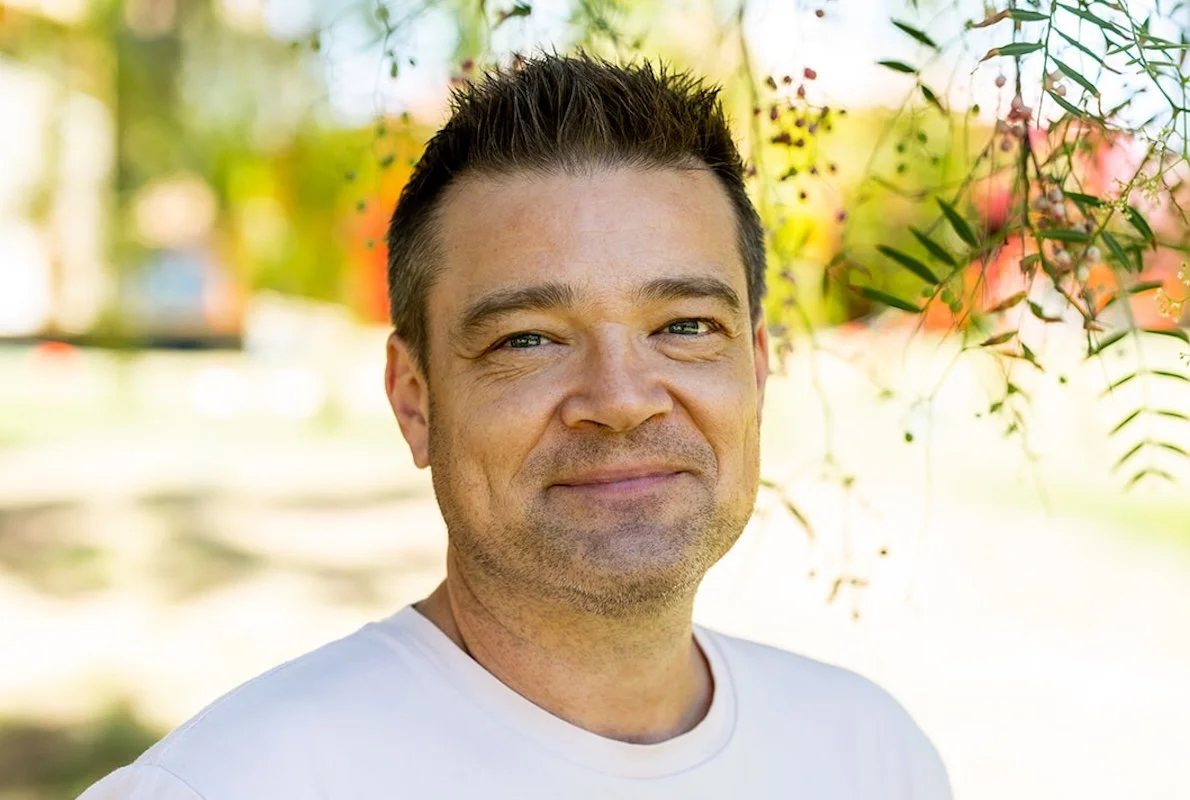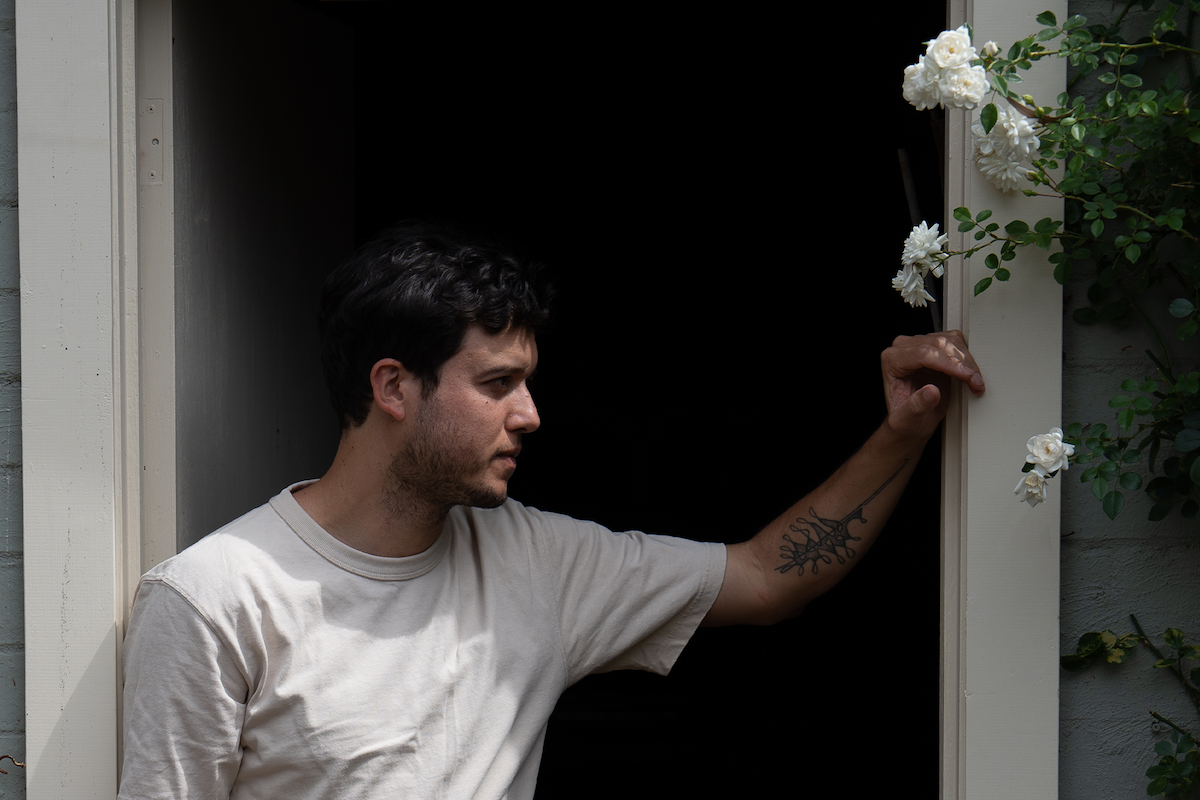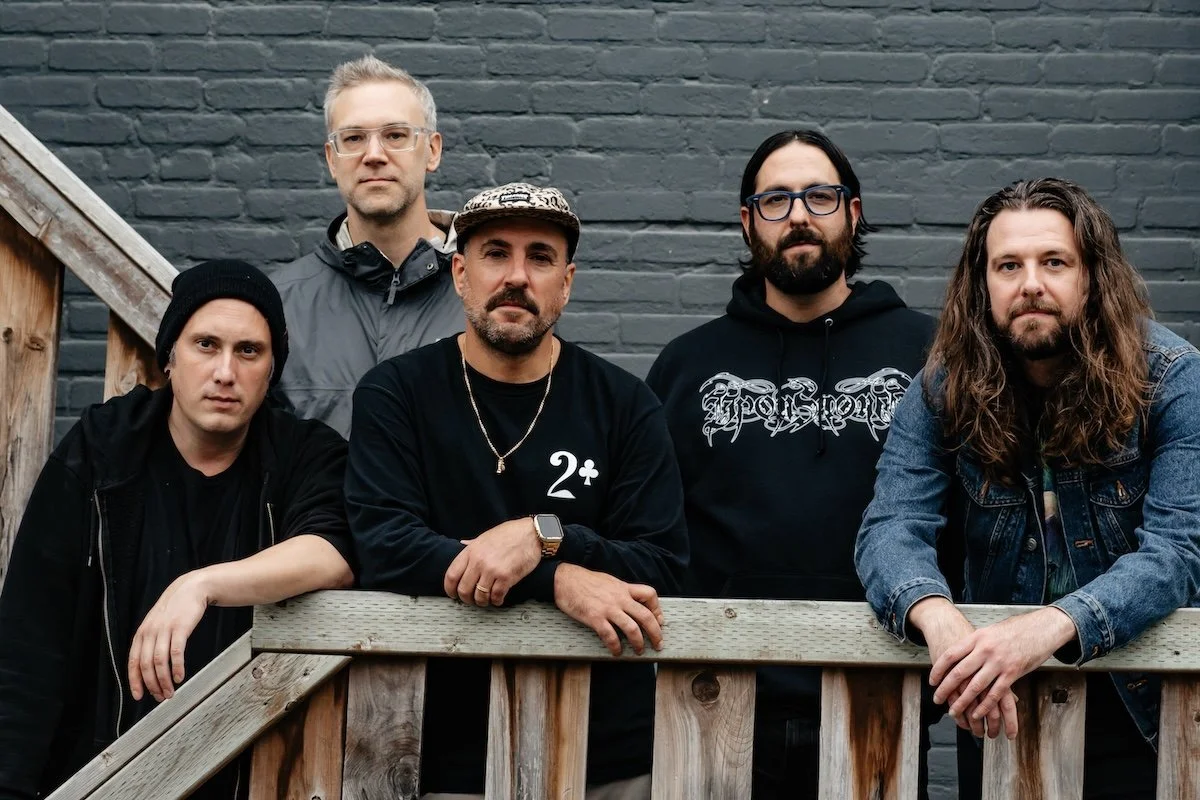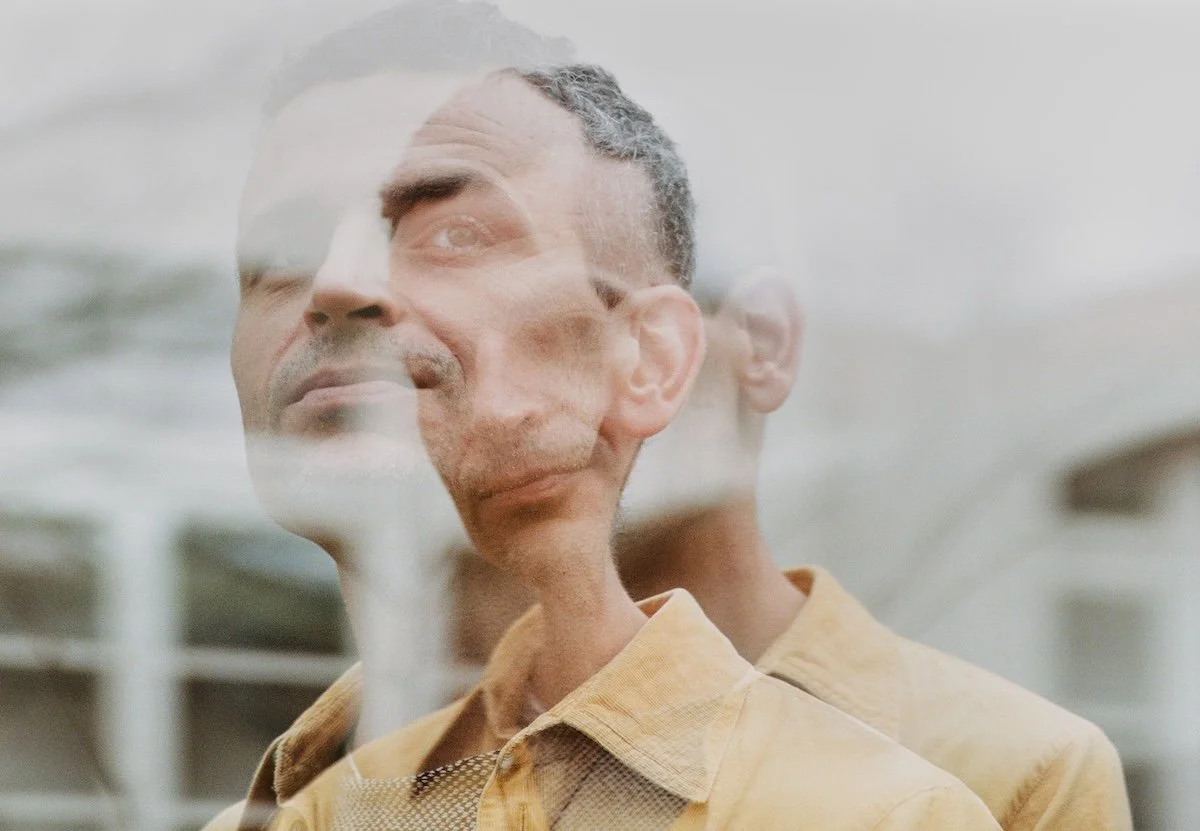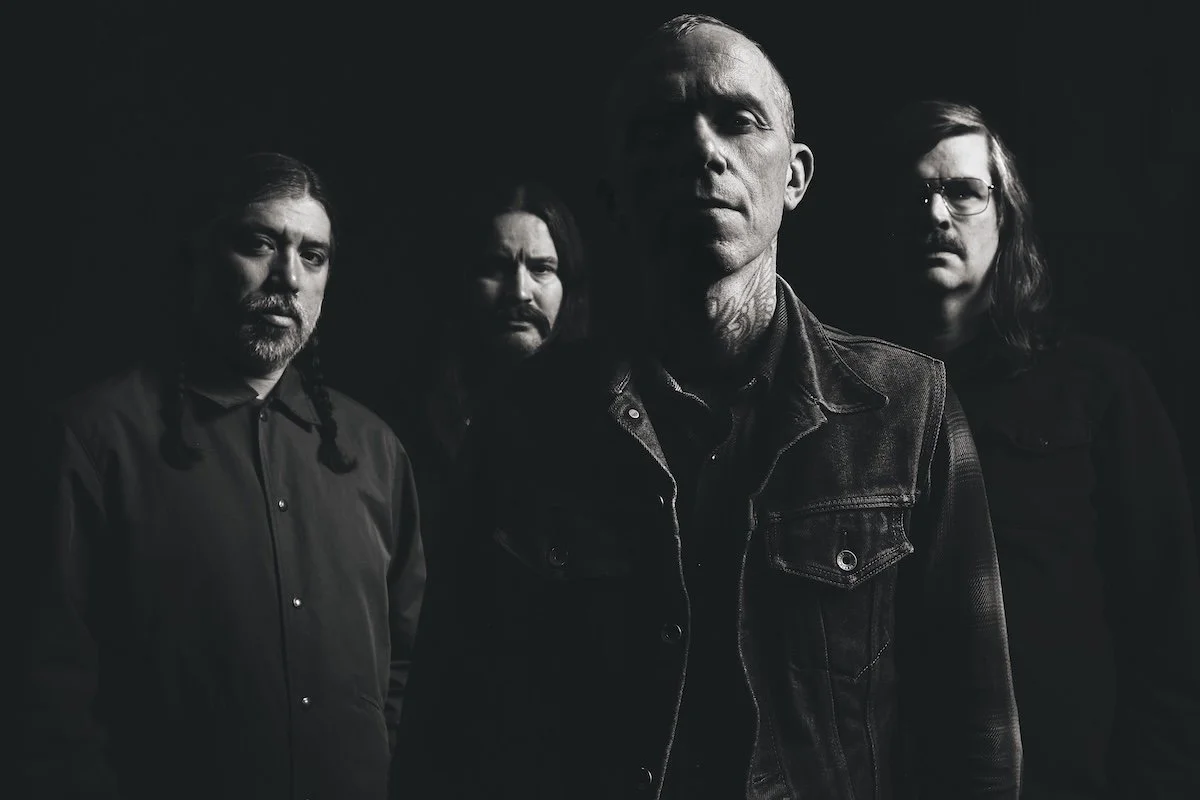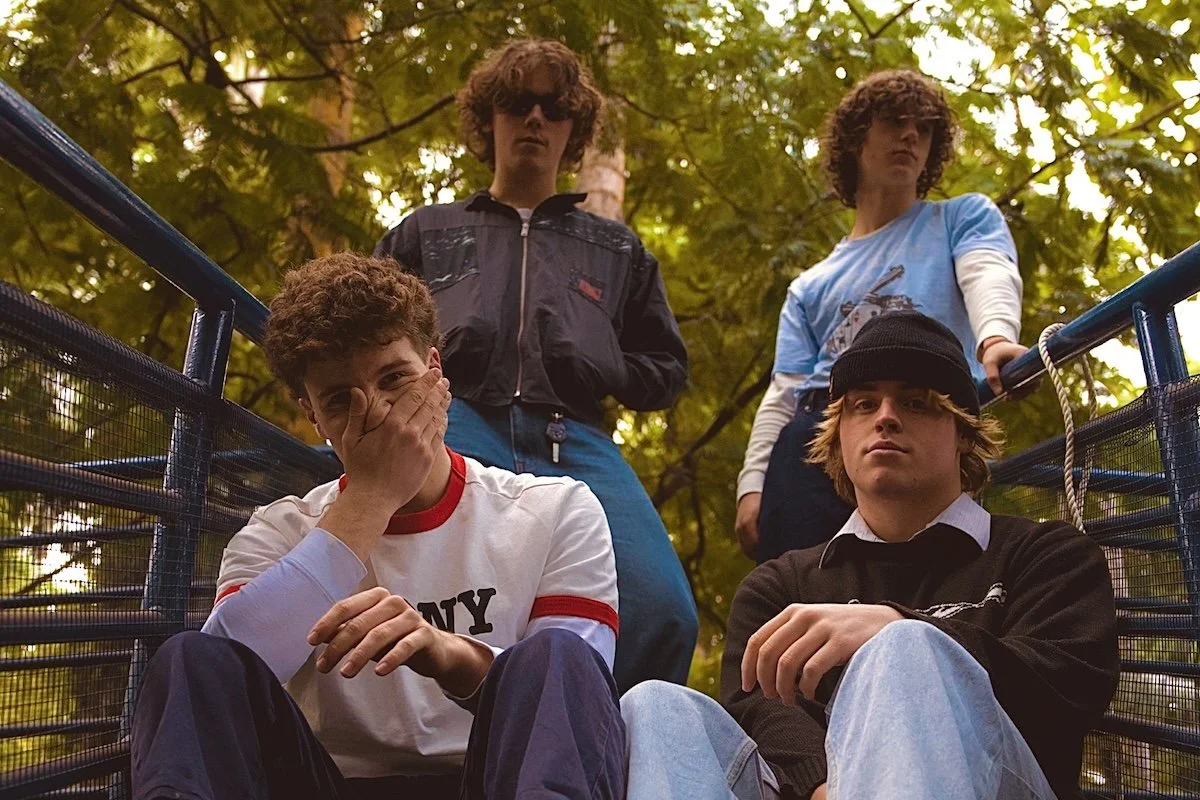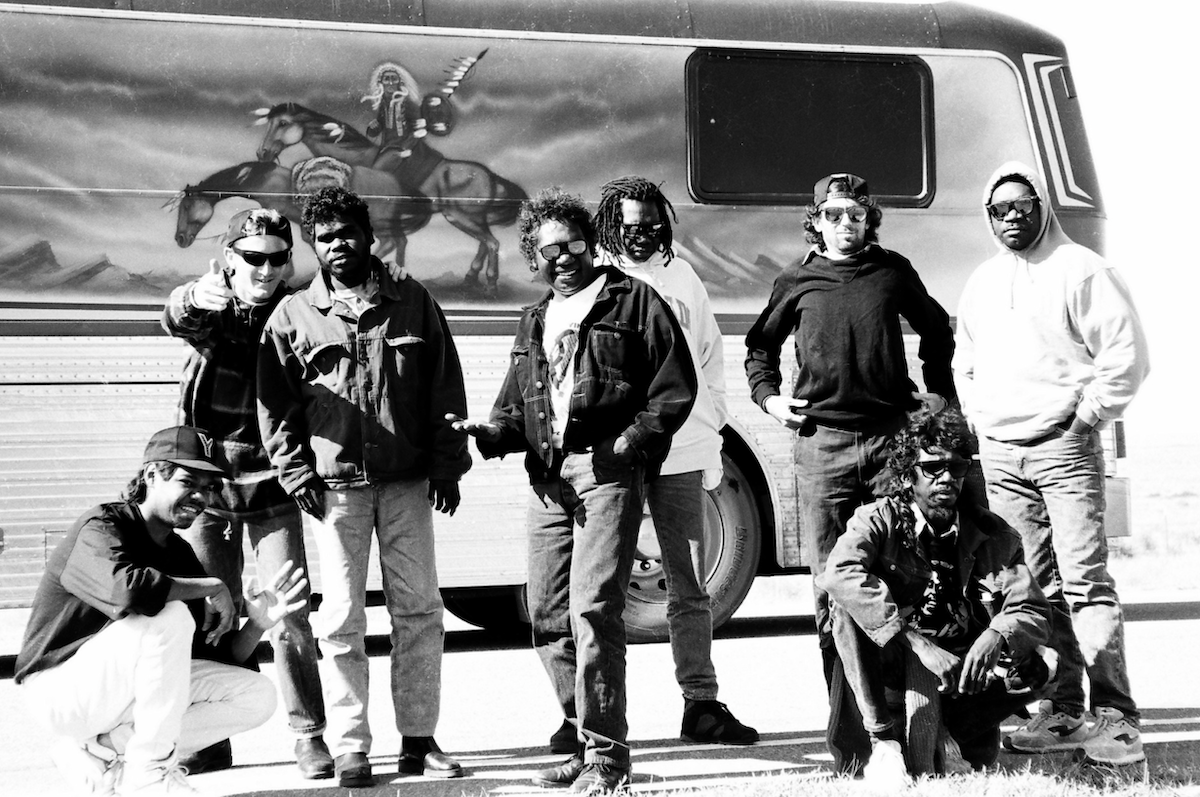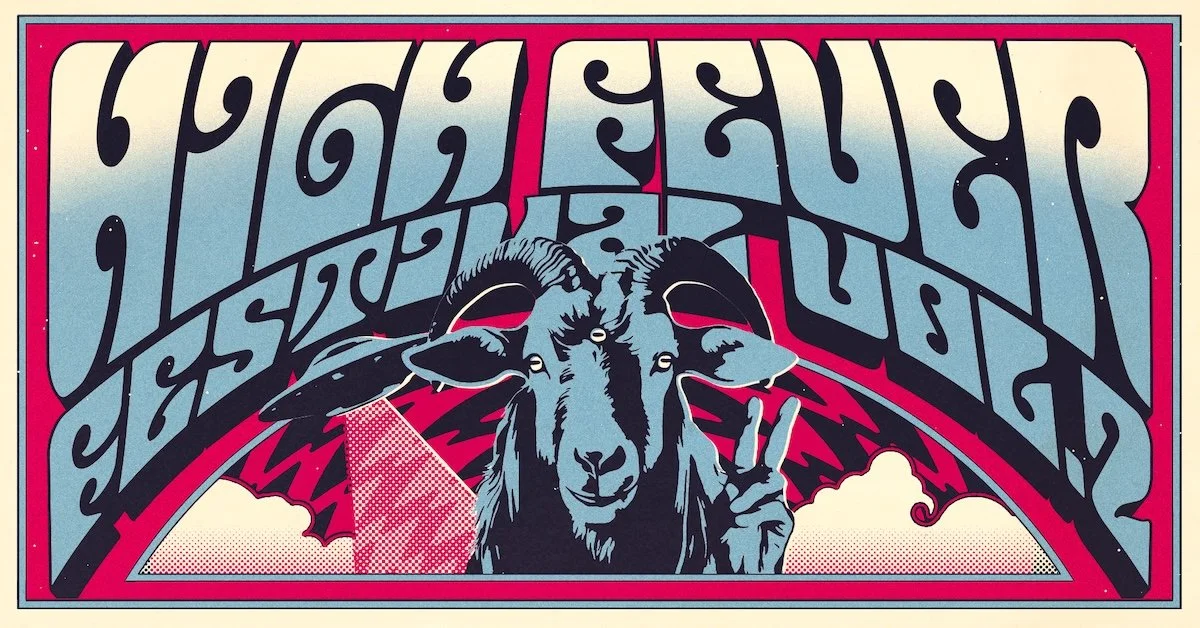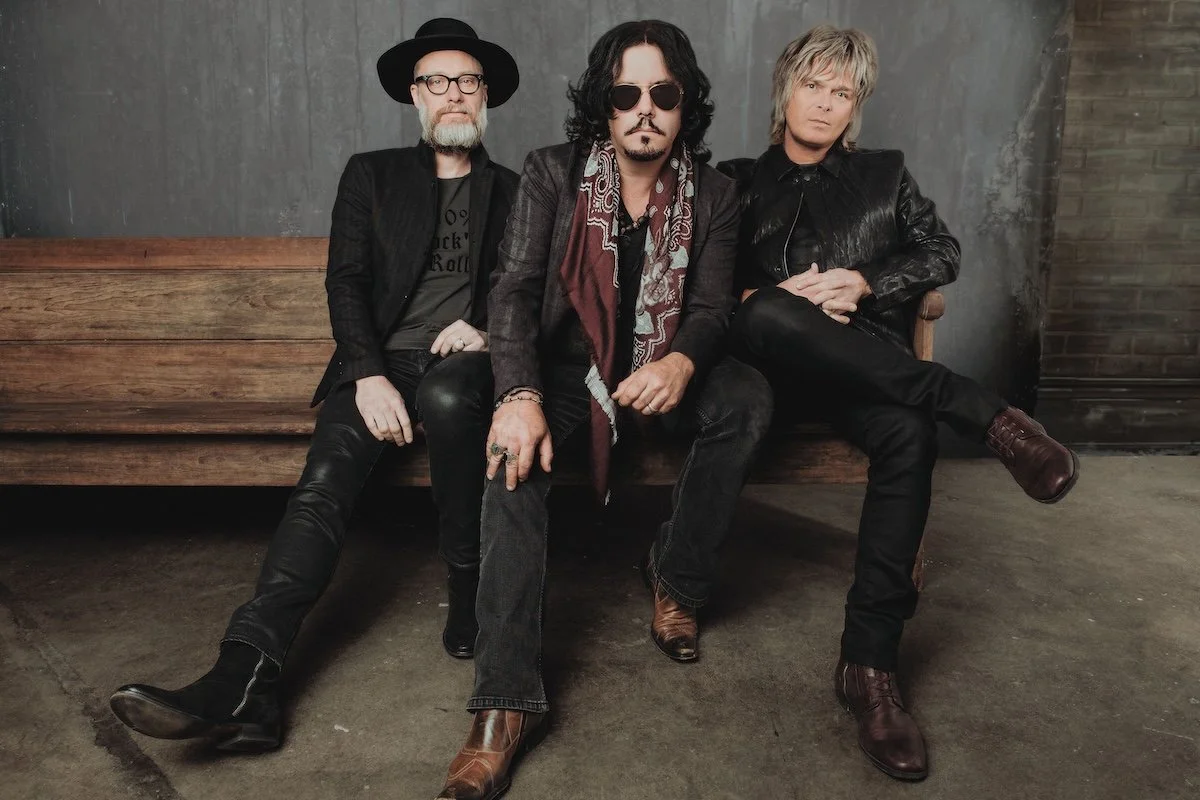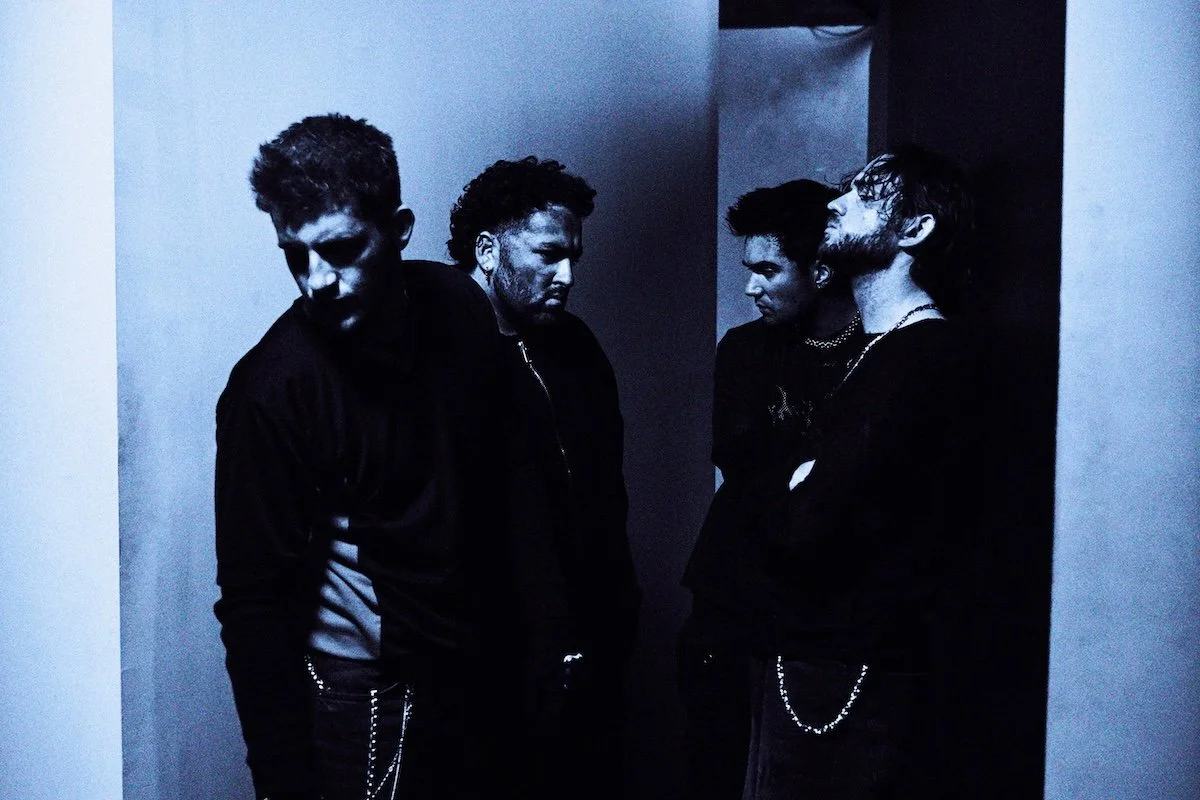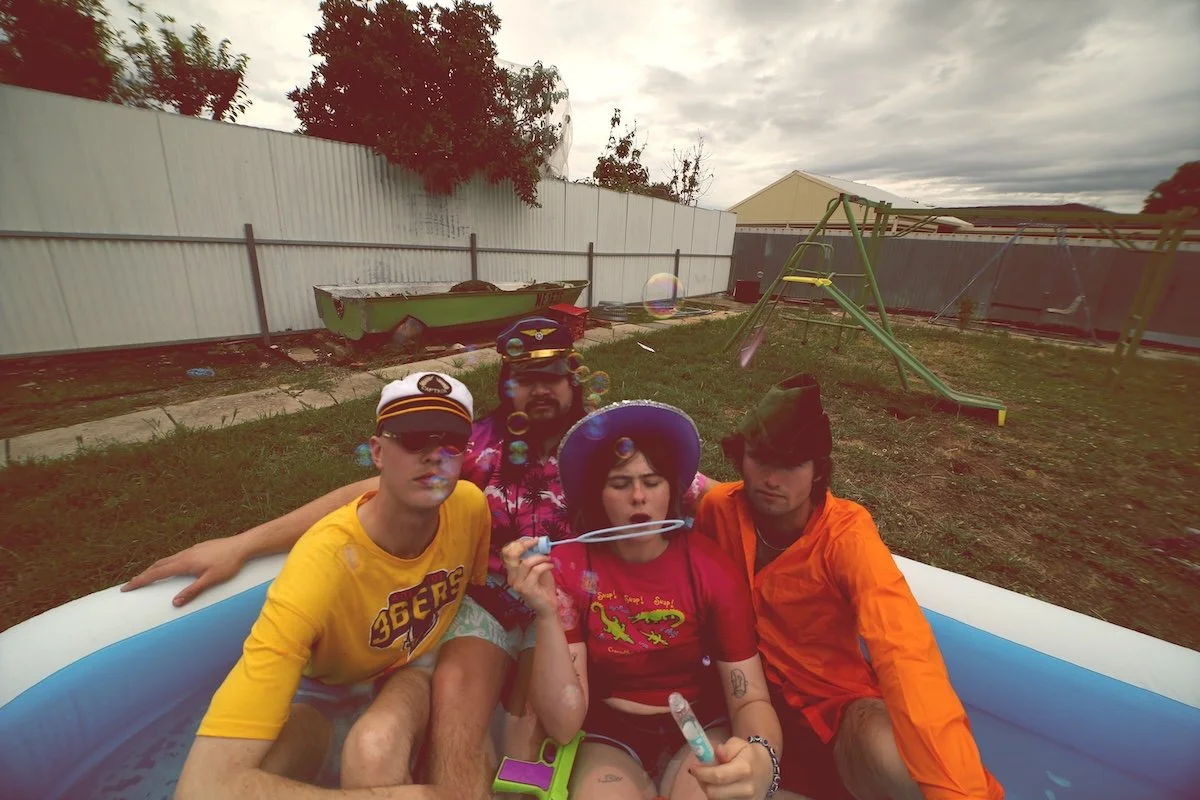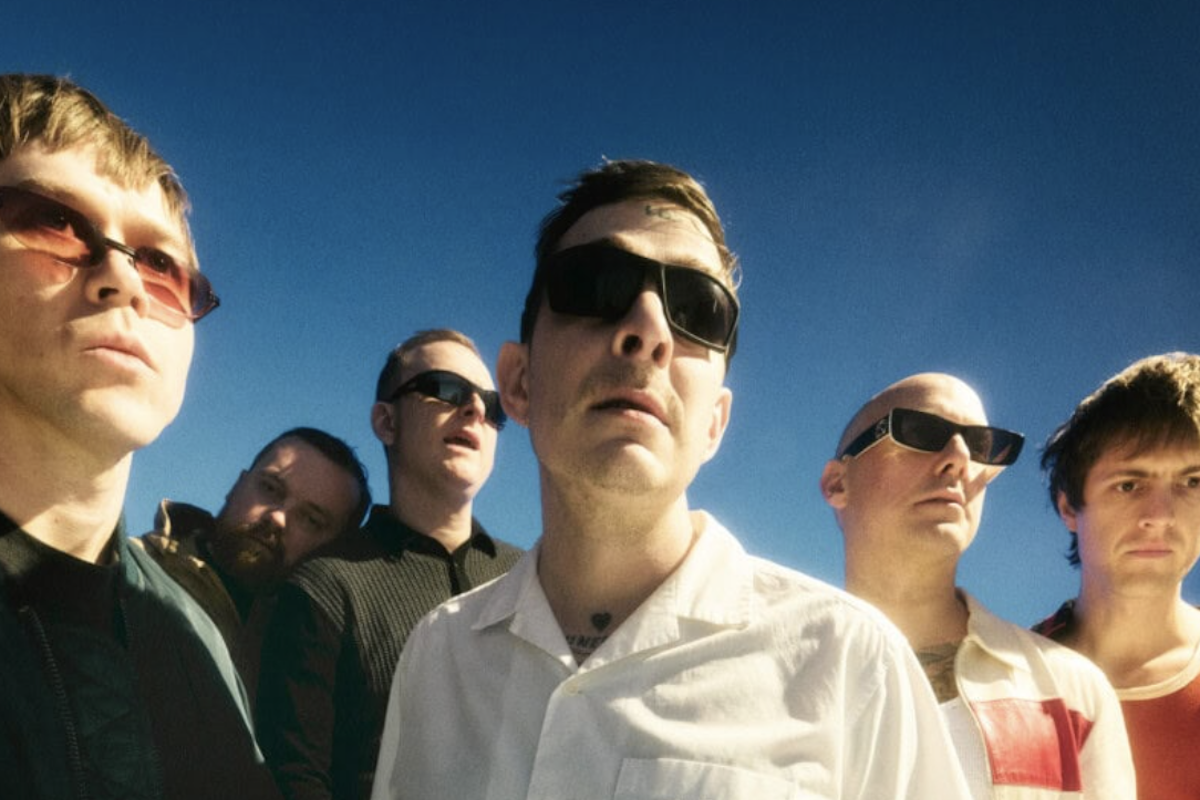Thrice: Illuminating New Horizons
California’s experimental post hardcore luminaries Thrice are back with their critically acclaimed and commercially successful twelfth studio album, Horizons/West. Ahead of their 2026 Australian tour, distinguished guitarist/vocalist Dustin Kensrue spoke with The Note about the record, poetry, wildlife and their upcoming Australian return.
Words Will Oakeshott // Image supplied
“And isn't that what a poem is? A lantern glowing in the dark.” - Elizabeth Acevedo, The Poet X, 2018.
One would be hard-pressed to argue with the above articulation constructed by The Poetry Foundation’s 2022 Young People's Poet Laureate winner. The book that this quotation is communicated from has alone won an astounding eight awards and attained numerous other accolades. Remarkably, Ms Acevedo has three further books which have acquired extensively more commendations. Her writing radiates brightness, and she has been deservedly rewarded for her inspirational work.
California’s long-serving post hardcore experimentalists Thrice have also received prestigious accolades, and even received The Spirit of Excellence in Music Award from the Irvine Public Schools Foundation for their dazzling music and poetry. Furthermore, The Recording Academy (the academy responsible for Grammy Awards) also listed the four-piece’s single ‘Blood On The Sand’ as one of the 12 Powerful Songs that Inspired Social Progress in 2016.
Their art and musical exploration have influenced countless musicians around the globe. To quote guitarist and vocalist Dustin Kensrue himself, Thrice “Hold up a light, steady and bright” (‘Hold Up A Light’, Palms, 2018).
Acevedo and Kensrue express their poetry in separate yet aligned designs that have accumulated adoration worldwide. They are, conceivably, “lanterns in the dark” themselves.
The question is, where do they find their inspiration?
For Kensrue, his lyrics are crafted through an array of impelling sources. ‘The Long Defeat’ (2016) was derived from The Lord Of The Rings, ‘Scavengers’ (2021) was constructed around Ursula Kroeber Le Guin’s Earthsea book series, and let’s not disregard Thrice’s four EP collection The Alchemy Index, which revolved around Earth, Fire, Water, and Air respectively.
In reference to the amazingly adventurous Horizons/West, the third track, named ‘Albatross’, was one that particularly fascinated this writer. With an abundance of captivating facts about the seabird, its history, and even its metaphoric use in psychology, it plagued this scribe to ask what in particular brought Kensrue to frame a composition about the mighty feathered creature?
“I'm pretty sure that that line originally came out of me just singing my nonsense words when I'm writing melodies,” he expresses with a tranquil laugh. Elaborates further – “But sometimes, I’ve learned to pay attention to something when it feels right, you should pay attention to it, and see what it means and play with it. So, there was a couple lines that were floating in and out, but that one kept staying. And so I started slowly building the song around that. And I like the idea of… Essentially, I'm playing with the idea of an albatross because it's come to mean kind of a curse, because of what happens in this poem, The Rime of the Ancient Mariner. The sailor in the tale kills the albatross, which generally is a good luck omen, but he kills it, then curses them all. He is then made to wear it around his neck.”
So, ‘Albatross’ is based on the poem by Samuel Taylor Coleridge from the 18th Century and a curse that comes from the execution of the seminal seabird?
“It's kind of taken on that meaning. But I've always thought it's interesting that someone's action turned a blessing into a curse, and [it] got me thinking about ways that we do that in our own lives, with things that are coming to us, and, you know, handling them poorly and really turning it around. So it's a little bit playing with the idea of how you can influence fate and luck.”
The albatross does have some intriguing characteristics, such as living beyond 60 years old, having the largest wingspan of any bird, and mating for life. Is there love entwined with the lyrical message?
“I mean, it is [a love song], but I actually didn't know the mate for life thing. That's cool. That's another little layer you got from there for me.”
“Layer” is a faultless description of Thrice’s musical ambience. From the metallic punk drive of their earlier material Identity Crisis (2000) and Illusion Of Safety (2002), to the prolific post hardcore magnum opus The Artist In The Ambulance (2003), all the way to electronica The Alchemy Index II [Water] (2007), then alternative rock found on Beggars (2009), and even grunge overtones in To Be Everywhere Is To Be Nowhere (2016) – panoramic musicianship is almost, understated. Please also note that the quartet’s explorations dive deeper with every release.
READ MORE: Parkway Drive: The Only Way Is Onwards and Upwards
Horizons/West is a prime example of the four-piece’s expansive brilliance. The tenth song, ‘Vesper Light’, encompasses chapters of outstanding orchestration, transitioning between Radiohead, Cave In and Tool movements in six minutes of wonderment, but undeniably the track is recognisable as Thrice. With the “A lantern glowing in the dark” statement recited earlier, Thrice are comparably “…the sun breaking through the clouds” (A.D. Posey) in their magical artistic illumination.
“Yeah, it's an interesting song. There's a kind of a lot of playing with different levels of the same idea. There's kind of a couple different movements in it, and then you hear them in different kind of intensities. I mean, honestly, the falsetto thing, with just the original demo I made, I think I was in the back of the bus or something, and I couldn't sing really loud, and so I was just trying to get a melody out there. And then the other guys kind of liked the vibe of it.”
It really is an astounding arrangement of musicianship.
“I've been surprised at how many people don't realise that it's me singing. I was a bit shocked, but I can't quite figure out why, because I've done falsetto stuff in the past, but never quite as prominent for as long. Or maybe it's a different register? Or is it that it's kind of drier? I don't know. Maybe in the way it's mixed, but everybody is really excited about that song.”
Kensrue, drummer Riley Breckenridge, bassist/synthesiser Eddie Breckenridge and guitarist (as well as every instrument he can grasp) Teppei Teranishi will be returning Down Under in May 2026, much to the excitement of their vast Australian adorers. Their last visit in 2023 was to celebrate the 20th anniversary of their seminal album The Artist In The Ambulance, as well as its re-recorded release featuring many guest vocalists, such as Sam Carter from Architects and Andy Hull from Manchester Orchestra (“That was a ton of fun, it really was,” Kensrue expresses with excitement). However, having visited our nation a few times over the past two decades, in scenarios from club shows to the Big Day Out festival to supporting Deftones, what are Dustin Kensrue’s recollections and thoughts of Australia?
“I mean, there's an element to it that's always felt really familiar in a cool way, just because the climate is a lot, well, where people actually live, there is a lot of similarity to California. So it feels like a weird, alternative California in certain ways, which is cool, but then, you know, with a lot of differences.”
He pauses for a moment, as if searching the depths of his memories to recall an astounding feature of our nation.
“We're big fans of your breakfast culture (laughs). Very, very on top of brekkie! No joke, we get excited about it because you guys, you take it for granted, but you can walk down to any random cafe and just have the best breakfast ever.”
A compelling highlight about Dustin Kensrue that might not be as well-known as it should be is his solo career. Last year, Kensrue released a beyond memorable country/folk record entitled Desert Dreaming that scintillatingly shone in its warmth and magnificence.
“It was a lot of fun. It's kind of one of those things that just gets a hold of you, and I had to kind of do it. I had to get it out of my system, in a good way. But also, I feel like it was a bit of a curveball, how much it leaned into the kind of ‘50s/’60s western country stuff, which some people may have been lost on. But, it just kind of got its teeth in me, and I had to do it.”
The single ‘Death Valley Honeymoon’ was inspired by your grandparents; did that provoke this necessity to orchestrate this beautiful LP?
“The first song is basically the story of my maternal grandparents; it's a wild story. And then I think some of the press mentioned the desert, just because I used to go out to my maternal grandparents, who lived out in like, [the] Palm Springs area. I’d walk around the desert, and so there was some kind of formative stuff around that for me.”
Understandably, those are memories that have been with you for quite a few years. Was time one of the major factors that amplified the desire to “get it out of your system in a good way”?
“I don't know, it's hard to say. I mean, I even think my relationship with the desert, and kind of the Southwest, is kind of a subplot of the record in general, of how I think I had a love for it as a kid, and then lost perspective. When I moved back from Washington, I really kind of fell in love with it all over again.”
Did you know Palm Springs has a desert climate with sunshine averaging over 300 days per year?
The light perhaps follows Dustin Kensure, but Thrice’s lantern seems to always glow in the dark.
Horizons/West by Thrice is out now via Epitaph. Catch Thrice performing at The Gov on Wednesday 6 May. Tickets on sale via sbmpresents.com.





